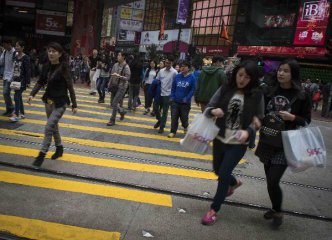
China’s economy appears increasingly set to avoid a “hard landing” and that could help push the country’s stock markets higher for the rest of this year, according to Stefan Hofer, chief investment strategist at LGT Bank.
Fears for a slowdown in the world’ s second largest economy swelled in 2018: Growth slowed to its worst pace in 28 years and equities tanked amid pessimism stoked by worries over escalation in the trade war between the United States and China.
But market sentiments turned substantially this year, with Chinese stocks soaring, the economy showing signs of hitting bottom and optimism building over a resolution to the tariff conflict.
“One of the more frightening tail risks that have been on investors’ radars is the idea of China having a hard landing,” Hofer told CNBC on Monday. He noted that they have since focused their attention on whether such an outcome can be avoided.
“And it looks like, basically, that they are getting there,” Hofer said of China, citing recent data such as an upturn in manufacturing.
Hofer cautioned that more data is needed to confirm whether a “soft landing” will be achieved. And if it is, stocks will likely push higher, he predicted, while pointing out that it will not be at the pace seen so far this year.
The strategist said that a further “gentle 5, 10, 15 percent” in gains is possible the rest of the year, adding that “green shoots of recovery” are visible and will likely increase.
“And if you do have that U.S.-China trade deal that we’re expecting, which is a higher quality one, then investor sentiment in China is going to go through the roof and it should be relatively clear sailing,” he said.
“If all we get is an agreement from China to buy more U.S. agricultural product, I think the market will be very disappointed with that,” he said.
China is scheduled to release economic growth numbers for the first quarter of 2019 on Wednesday and economists polled by Reuters expect GDP to increase 6.3 percent from the same period last year. China’s economy grew 6.4 percent in the last quarter of 2018 from a year earlier.
Source: CNBC
Translated by Jennifer
























Latest comments